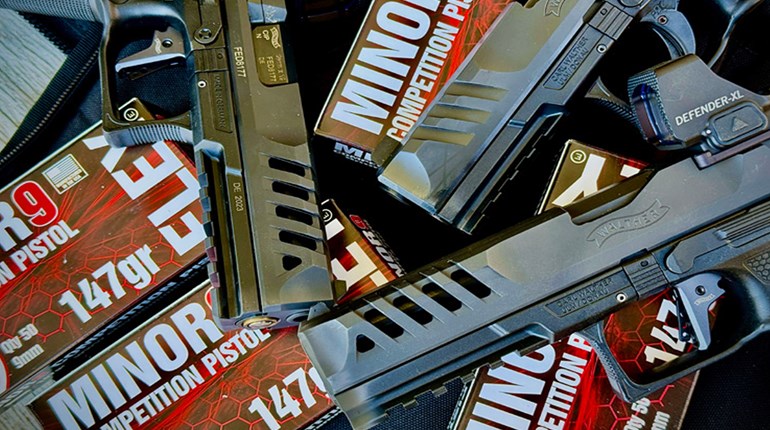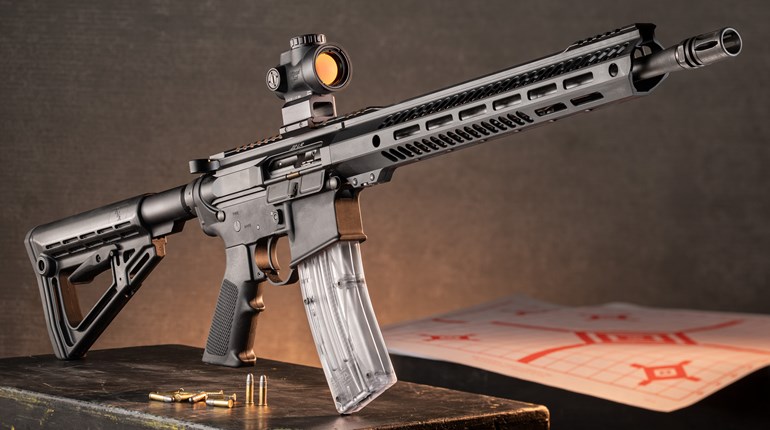
Ammunition companies have not been able to keep up with consumer demand. There are many reasons for this. In 2020, over eight million Americans bought their first gun. These people now need ammo. Others are stockpiling. It’s hard to blame them, as we now have President Joe Biden (D), Speaker of the House Nancy Pelosi (D-Calif.), and U.S. Senate Majority Leader Chuck Schumer (D-N.Y.) all saying they want to pass new gun-control laws.
But if you think the shortage is bad now, just imagine if these politicians got one more thing they want: a repeal of the Protection of Lawful Commerce in Arms Act (PLCAA).
When he was running for president, Biden made a campaign promise to do all he could to repeal the PLCAA; also, “his agenda for his first 100 days in office includes introducing legislation to accomplish this goal,” to NRA-ILA. Ending the PLCAA would mean the destruction of the U.S. firearms industry, including the ammunition industry.
In 2005, the PLCAA was enacted to bring an end to frivolous and damaging lawsuits that anti-Second Amendment organizations and individuals were using to financially cripple gun makers.
As NRA-ILA explained: “Imagine if firearm manufactures and sellers—even those who strictly followed the laws enacted to regulate their industry—faced potential civil liability every time a criminal misused a firearm. The effect would be similar to holding automobile makers and dealers responsible for injuries caused by drunk drivers. No business, no matter how conscientious and law-abiding, could ever survive being liable for the acts of millions of random people over whom it had no control.”
Pragmatically speaking, the Second Amendment is not viable if we can’t purchase firearms, ammunition, and related shooting gear.
The PLCAA was passed by a bipartisan majority in both chambers of Congress and signed into law by then-President George W. Bush. The impetus for the PLCAA was a flood of lawsuits that sought to hold firearms manufacturers responsible for illegal acts perpetrated with firearms.
“Lawsuits were piling up in the mid to late 1990’s and early 2000’s when over 40 big city mayors conspired through the U.S. Conference of Mayors with gun-control activist lawyers from the Brady Center and greedy trial lawyers,” the National Shooting Sports Foundation reported. “Their plan was to haul firearm manufacturers and sellers into court to make the industry pay for the subsequent criminal misuse of legal, non-defective firearms lawfully sold after a background check to law-abiding Americans exercising their Second Amendment rights.”
And these lawsuits didn’t even have to be victorious for the anti-Second Amendment groups to score wins. Simply keeping the gun makers in court, fighting to survive while the antis filed innumerable lawsuits, extensions, and appeals, cost millions of dollars and could have even bankrupted these manufacturers.
Biden and other anti-Second Amendment activists routinely claim that the PLCAA provides some extraordinary grant of immunity upon the firearms industry; actually, the law simply says that these agenda-driven lawsuits can’t be brought against a manufacturer and other companies.
Jonathan Turley, the Shapiro Professor of Public Interest Law at George Washington University addressed this in an op-ed for The Hill. He wrote, “Product liability and tort actions against manufacturers have uniformly and correctly been rejected by the courts. Guns are lawful products, and holding companies liable for later misuse of such products is absurd. You might as well sue an axe manufacturer for the Lizzy Borden murders.”
Remove the protections in place with PLCAA, and every firearm, shotshell, and cartridge maker could theoretically be sued every time a criminal uses a firearm in an illegal act. Every lawsuit would cost these manufacturers a great deal of money in legal fees.
If gun makers and dealers go bankrupt, gun-control groups can effectively end the Second Amendment without a single win in court.


































